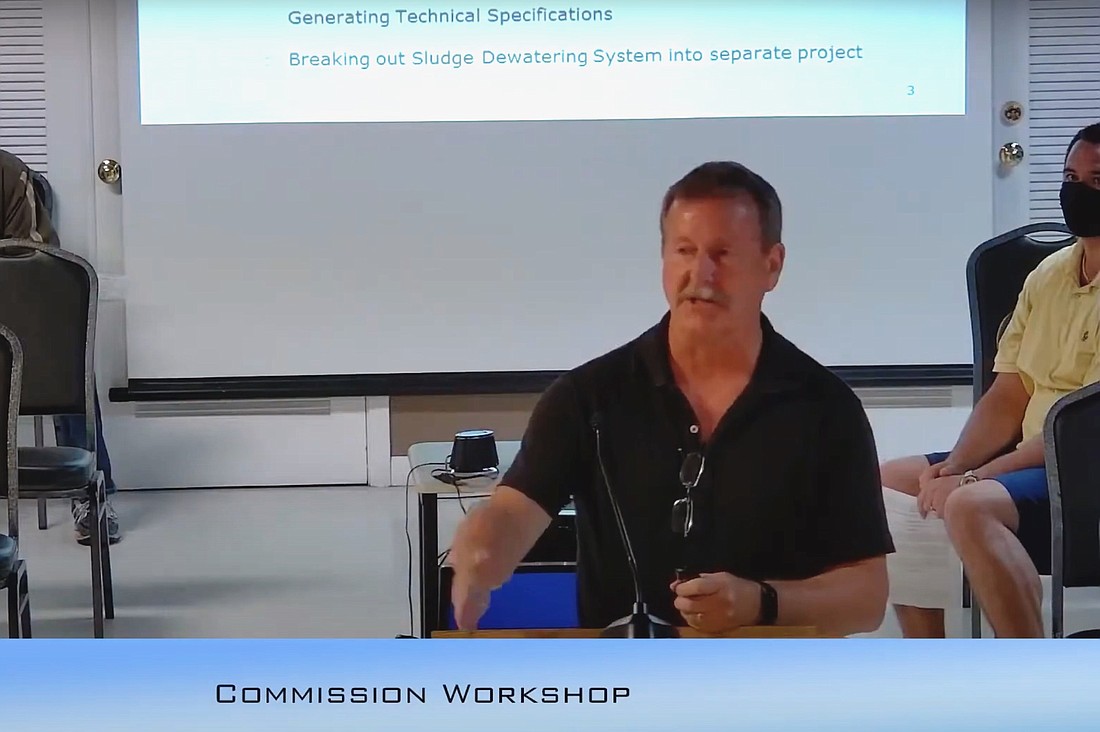- April 24, 2024
-
-
Loading

Loading

Flagler Beach is planning to replace its wastewater plant to avoid discharging the treated wastewater into the Intracoastal, and likely won’t have to add as much capacity as it initially thought — at least, not yet, an expert told Flagler Beach city commissioners at a commission meeting on Oct. 14.
CPH Inc., an architectural and engineering firm, has been designing a new plant for the city and is about 80% complete, CPH Vice President Benjamin Fries told commissioners at the meeting.
“Now we just have to do a few little things, and the money will be handed over, and we’ll be good to go,” he said.
The project is on schedule to go out to bid for construction in the first quarter of 2022, Fries said. It will likely take approximately 18 months to build.
That’s important, because upcoming legal changes in the state of Florida will soon make it illegal to discharge treated wastewater into the Intracoastal.
All of Flagler Beach’s treated wastewater goes there now, so the city needs a way to make the wastewater reusable as reclaimed water so that it can stop those discharges.
The city’s current wastewater treatment plant doesn’t treat wastewater sufficiently to allow the treated water to become usable as reclaimed water.
The water’s salt content is too high, even after treatment at the current plant.
Fries hopes to be done with the design for the new plant by Thanksgiving, and already has a Florida Department of Environmental Protection permit for the new plant, he said.
Grant funding and a state loan will cover much of the work for the new plant.
Flagler Beach had initially been discussing a plant with a treatment capacity of two million gallons per day, but Fries thought that excessive: He’s proposed one that would have the capacity to treat one million gallons per day with capacity to expand to 1.5 million per day.
The only portion of the treatment plant that wouldn’t be able to immediately handle the 1.5 million gallons would be the biological treatment system.
That could be upgraded later to add the additional 500,000 gallons worth of capacity, Fries said.